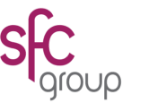

Turning “Work From Home” Into a Work of Art
Lessons From a Virtual Ad Agency
Welcome to the inaugural post of “One More Thought”! This blog is a place for our team members to share their hard-won wisdom and show the depth of talent and knowledge we prize here at SFC Group. Stop by every once in a while, and get to know the people dedicated to pushing brands to the next level.
There’s no doubt about it: working from home – all day, every day – is different than “WFH Mondays.” I should know. At SFC Group, we’ve been doing it for years. As a WFH veteran myself, I’ve noted with great interest the discussions, rants, and handwringing as a sizable chunk of the planet wrestles with the challenges inherent in this new(er) way to work.
I say, “Welcome to the party.”
A talent-driven decision.
Truth be told, I never intended to start a virtual ad agency. When I decided to launch my own shop – after building and managing successful agencies for other owners – I fully expected to have a brick-and-mortar, “don’t forget to clean the microwave in the break room” kind of place. Probably with a very cool reception area and a great view. But the team I began to build taught me otherwise.
I was fortunate enough to have worked with some extremely talented people throughout my 30+-year career. And I knew that bringing the band back together would be essential to success. However, there was one catch: they were scattered across the country and had no interest in relocating. It didn’t take long for me to realize that I could secure some seriously high-caliber talent if I allowed everyone to work from right where they were. And so SFC Group was born, nearly 4 years ago, as a fully virtual agency.
Since then, we’ve produced a ton of award-winning, needle-moving work for a growing roster of clients (223% growth over the past year). Just as importantly, we’ve refined our processes and fine-tuned our workstream management to keep productivity high without burning out our team.
Here’s some of what we’ve learned about working effectively remotely.
Short meetings, only when necessary. It’s often easy, and seemingly the default, to schedule a meeting for just about everything. But is it necessary? Here, we’ve set the bar high for meetings. Ask yourself, is it essential? Who really needs to attend? Does it really need to last an hour? Long team meetings are usually due to a lack of focus and inability to stay on topic. By creating rough drafts of work plans, strategies, or creative we have a basis for discussion and a set agenda to adhere to. So, when we do meet, decisions are made, and we move on.
Establish “smart” deadlines. Smart deadlines are to normal deadlines as a smartphone is to a flip phone: one provides a whole lot more valuable information than the other. A smart deadline gives everyone on the team credit for being an adult with a brain. Our team knows if the deadline is internal, how critical it is (a “must make” in our parlance), who established the date, etc. We use that information to responsibly juggle workloads with appropriate levels of urgency. Because EVERYTHING can’t be on fire.
Be grown-ups. Managers new to “Work From Home” scenarios often wrestle with the suspicion that “people aren’t really working.” They feel some are trying to game the system. Two truths on that front: (1) Some people DO try to game the system when working from home. (2) The same people who cut corners at home were doing the same in the office – you just didn’t know it. People who have a grown-up work ethic do their work and then some. Your top performers will remain your top performers, no matter where they work.
Clarify assignments. One of the keys to productivity for a distributed workforce is focusing your team’s efforts efficiently. As an ad agency, we have a bit of an advantage since every job of any significant size begins with a creative brief and/or project plan. This forces us to define clearly what the deliverables are and who is responsible for that deliverable. If there’s a name next to an assignment and they’re not clear on what’s required of them, our team members know to speak up and find out. Then they get down to it.
Define optimal access. What’s the best way to contact each member of your team? Different members of your team may respond better to different methods of contact. Email, phone, Zoom, text, Slack? Don’t assume you know. Also, adapt as needed to different degrees of urgency. For us, that means “text only when absolutely necessary.”
Work hard, play hard. Simple to say, easy to neglect. If you say you want people to recharge their batteries, you need to give them the latitude to do so. Motivational memos and advocacy for self-care are nice, but as a leader you’ve got to walk the talk. Encourage blocking your calendar, no questions asked. “Meet-less” Fridays (after 11:30 am for us) are a great place to start.
While many companies are heading back to the office to varying degrees, it seems some level of working from home is here to stay. Don’t fight the trend, master it. As the competition for talent heats up, you’ll have an edge in making your team happier and more productive.
